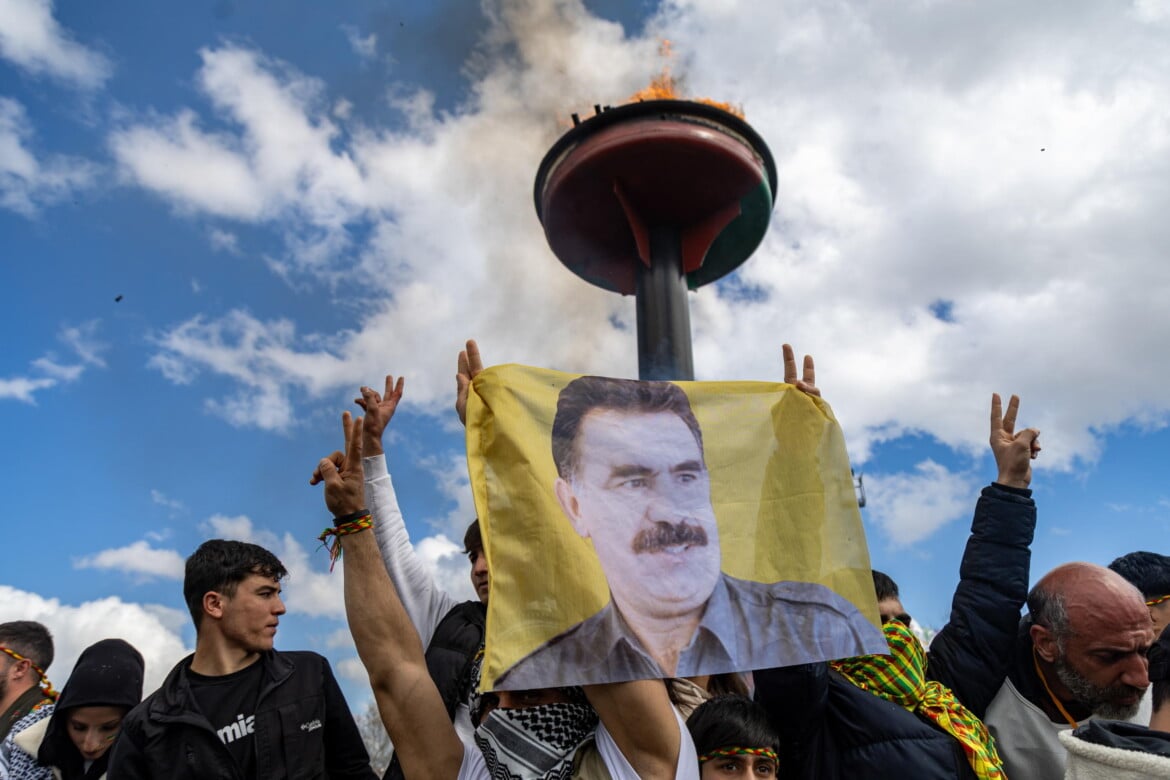Reportage
Nobel laureates call for Ocalan’s release from solitary confinement
The recent history of the Kurdish-Turkish conflict shows that peace processes are fragile and easily fail. But it also shows that leaders can choose to reopen them.

From İmralı prison, the island prison where he has been held in solitary confinement for 26 years, Abdullah Öcalan has once again commented on the ongoing peace process. On July 11, news emerged of a new three-and-a-half-hour meeting between Öcalan and a delegation from the Dem Party.
“Öcalan found both the way the weapons destruction ceremony was conducted and the will, conviction and determination shown for peace to be extremely valuable,” reads the delegation's official statement released the following day. This refers to the symbolic gesture on July 11, when a group of Kurdish guerrillas laid down their arms, sending a concrete signal toward dialogue.
On the same day, 88 Nobel Prize winners from all fields signed a letter, now made public, addressed to Turkish President Recep Tayyip Erdoğan and international institutions, calling for an end to Öcalan's isolation and his direct involvement in renewed peace efforts. “At a time of intensifying conflict around the world, Mr. Öcalan’s call for peace and democracy in Türkiye is a beacon of hope for the peoples of the region,” the Nobel laureates write. “Mr. Öcalan’s appeal is inspired by fraternity and peace. As Nobel Laureates, we recognize and support this initiative.”
The initiative, promoted by Jody Williams, 1997 Nobel Peace Prize winner, and Shirin Ebadi, who won in 2003, represents the third collective intervention of this kind in recent years. However, for the first time the signatories go beyond denouncing the prison conditions imposed on the Kurdish leader.
They explicitly call for his release and active participation in the negotiations: “Mr. Öcalan must be released and enabled to fully participate in the peace process that he initiated by being able to freely communicate with his lawyers, his party, and all other actors involved.”
The Nobel laureates also point the finger at international institutions, particularly European ones, for their “apparent lack of any significant effort” in applying the 2014 ruling of the European Court of Human Rights, which judged the life sentence imposed on Öcalan to be contrary to the “right to hope.”
In June, Turkey informed the Committee of Ministers of the Council of Europe that prisoners serving aggravated life sentences, including Öcalan, were excluded from the “right to hope,” causing strong reactions from the Dem Party, which accused the government of wanting to use a human right as a bargaining chip. In September, the Committee of Ministers will meet again to discuss Turkey's failure to comply with this ruling.
The recent history of the Kurdish-Turkish conflict shows that peace processes are fragile and easily fail. But it also shows that leaders can choose to reopen them. The Nobel laureates remind Erdoğan of this directly: “In the context of increasing violence, war, destruction and instability at the international level, it is urgent that leaders champion peace and democratic values – that they have the courage to tread different paths for the peaceful resolution of conflicts and the co-existence between peoples. We believe that you, as President of the Republic of Türkiye, will want to assume such leadership.”
Meanwhile, a first crack in the impenetrable walls of İmralı appeared with the release of Veysi Aktaş after more than 31 years in detention. Aktaş appeared alongside Öcalan in a video released on 8 July. One of four prisoners transferred to the island during the failed negotiations more than 10 years ago, Aktaş had formally completed his 30-year sentence in 2024, but his release had been postponed by a decision of the Prison Administration and Supervision Board through an opaque and arbitrary mechanism.
Now, after a further three-month postponement, he has been freed.
This was not a concession: Aktaş's release is not an amnesty but the result of an established right being applied. But in a context where legality itself is suspended, as in the “İmralı system” – as the lawyers of prisoners on the island call it – it is a sign that bodes well for building a future of peace, cell by cell.
Originally published at https://ilmanifesto.it/i-premi-nobel-alla-turchia-ocalan-va-liberato on 2025-07-30
